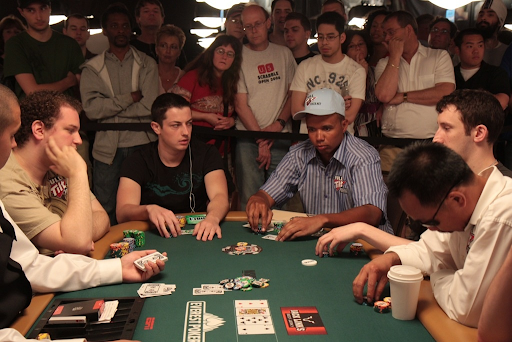Strategic thinking is an essential skill in life, and poker games offer a unique playground for honing it. Unlike many other pastimes, poker requires a combination of observation, calculation, and intuition. Players must constantly assess risk, anticipate opponents’ moves, and make decisions under pressure. This dynamic environment encourages mental agility and sharpens decision-making abilities.
Psychological Insights Gained Through Poker Games
Poker games are more than just a card competition; they are a test of human psychology. Players must read subtle cues, understand opponents’ behaviors, and predict actions. These skills translate beyond the table, fostering empathy and strategic assessment in everyday situations. By interpreting others’ intentions, players develop the ability to anticipate reactions and make smarter choices in both professional and personal contexts. The poker games teach the mind to stay alert and flexible, strengthening analytical skills in unpredictable scenarios.
Risk Management Lessons From Poker Games
Engaging in poker games trains individuals to evaluate risk carefully. Every hand presents a decision: fold, call, or raise. Understanding probabilities and potential outcomes is crucial. Players learn to balance potential gains against possible losses, a skill that mirrors financial decisions and project management in real life. The game cultivates patience and restraint, teaching that impulsive actions often lead to negative consequences. Through repeated exposure, players internalize risk assessment as a core part of strategic thinking.
Decision-Making Under Pressure in Poker Games
Poker games are fast-paced and unpredictable. Decisions often need to be made within seconds, with incomplete information. This environment builds mental resilience and confidence. Players learn to weigh options quickly and act decisively. The ability to make strategic choices under pressure carries over to work and personal life, enhancing problem-solving skills. Players often report feeling more composed in high-stakes situations after consistent poker experience, demonstrating the transfer of strategic thinking from the table to real-world challenges.
Analytical Skills Development Through Poker Games
Success in poker games depends heavily on analysis. Players must calculate odds, track patterns, and interpret probabilities. This constant engagement with numbers and scenarios sharpens cognitive functions and strengthens logical reasoning. Analytical skills gained from poker extend beyond the game itself, aiding in tasks that require careful planning, data interpretation, and methodical problem-solving. Every hand played is an exercise in strategic analysis, reinforcing critical thinking over time.
Observation and Pattern Recognition
Strategic thinking also thrives on observation. In poker games, players study opponents’ tendencies, betting patterns, and reactions. Recognizing these patterns allows for more informed decisions. Beyond the card table, the ability to notice subtle trends enhances situational awareness. It fosters an eye for detail, making players more adept at anticipating outcomes and planning strategically in complex scenarios.
Social Strategy and Emotional Control
Poker games challenge emotional control. Maintaining composure while facing losses or unexpected moves is vital. Emotional regulation prevents rash decisions and strengthens strategic planning. Moreover, poker encourages social strategy—negotiating interactions, bluffing effectively, and understanding group dynamics. These lessons build interpersonal skills, adding depth to strategic thinking that relies not only on logic but also on human understanding.
Conclusion
Poker games are a powerful tool for developing strategic thinking. They cultivate psychological insight, risk management, analytical reasoning, and emotional control. Through observation and decision-making under pressure, players gain skills applicable far beyond the table. Engaging in poker games consistently can sharpen the mind, improve foresight, and enhance overall strategic capabilities. The lessons learned from each hand, each bet, and each decision are not confined to the game—they prepare players for the complex challenges of real life.

